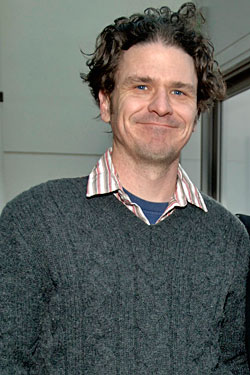
There’s a succession battle micro-brewing in the world of literary journals: Who will be the next editor of The Paris Review? For its first 50 years, the magazine was run by George Plimpton, who is essentially a saint among the bookish. (One group has been agitating for years to erect a statue of him in New York; Philip Roth basically erected a verbal statue in his recent novel Exit Ghost: “He seemingly had nothing to escape, no flaw to hide or injustice to defy or defect to compensate for or weakness to overcome.”)
Plimpton’s successors, Brigid Hughes and Philip Gourevitch, were both capable but less statuesque. When Gourevitch announced, last November, that he would step down, a web-wide literary parlor game began: Who could speculate most intriguingly about his replacement? The list of potential succesors was long, and included just about every youngish lit-world media player: from writers (Ben Marcus, Nathaniel Rich, Jonathan Dee) to editors (Roger Hodge, Ben Metcalf, Meghan O’Rourke). As Gourevitch’s step-down date approaches in April, the parlor game has begun to heat up.
And now I think we might have a winner.
The boldest, most counterintuitive candidate of all was nominated yesterday on the book blog the Millions by Garth Risk Hallberg, one of the smartest literary-critical writers writing anywhere. Hallberg argues that Plimpton’s sacred spot should be given to:
(I feel like we need something typographically dramatic here … )
…
…
…
Dave Eggers!
In other words, America’s most venerable literary institution should be handed over to the twee-meta king of the McSweeney’s empire.
My first instinct was to scoff at first. Like any self-serious writer who’s never been invited to write for McSweeney’s, I’ve gotten into the habit of dismissing Eggers. And it’s true, a handful of obvious objections leap out right away: Eggers already runs a journal; he seems pretty busy writing books and screenplays and putting together anthologies; and — most important — he shows few signs of having the capital-L literary chops for the job.
Hallberg, though, makes a very persuasive case:
Eggers is an entrepreneur of distinction, a gifted fund-raiser, a networker, a talent scout, a celebrity, a philanthropist, and an accomplished graphic designer. Moreover, he has a particular editorial capacity that’s always in rare supply: the capacity for vision. At his first two magazines — Might and (especially) McSweeney’s — Eggers helped to distill into literary form the sensibility of those who came of age after The End of History … and before history unceremoniously resumed. Whimsical, highly aestheticized, conspicuously casual, reverent of childhood and its signifiers, bound by the dialectic of irony and sincerity, the style of McSweeney’s has become the style of post-post-Modernism.
In an ideal world, Hallberg argues, Eggers and The Paris Review would cross-breed in fascinating ways. On one hand, their marriage would give the journal a jolt, instantly making it relevant to a big new demographic of passionate readers. On the other, it would force the Eggers aesthetic to grow up a little bit — he’d have no choice but to use his considerable creativity and intelligence in the service of something serious and respectable and adult. As Hallberg puts it:
… the next editor will have to make the case to readers that, in this era of YouTube and the iPad, the bound literary quarterly is still worth their time and money. That’s a mission Dave Eggers has already proven himself to be committed to. And The Paris Review, for nearly 60 years, has proven its commitment to the kind of great American writing I’d like to see more of from Eggers. Odds are these two commitments will be pursued on parallel tracks — but wouldn’t it be great if they could meet?
Actually, it might be great. Sign me up for Team Eggers.
Draft Dave: Why Eggers Should Edit The Paris Review [Millions]




